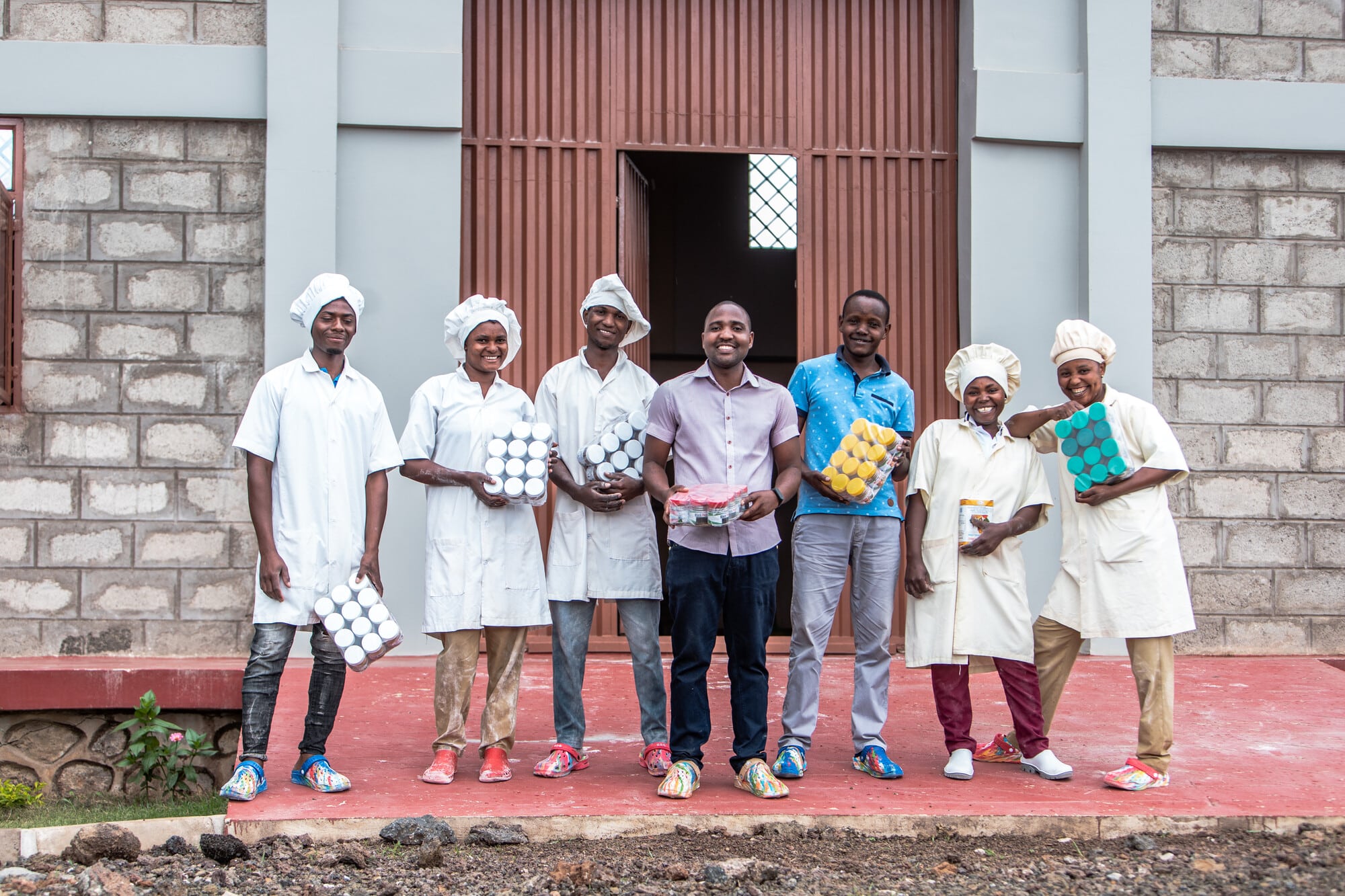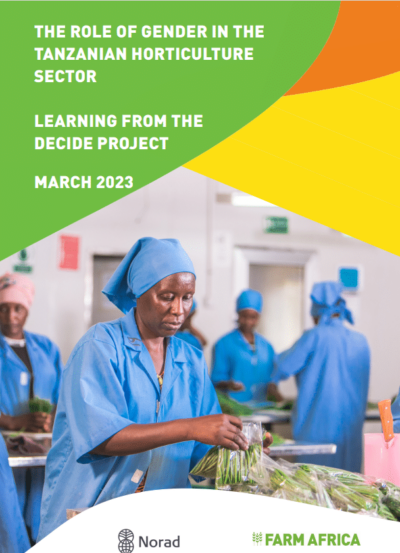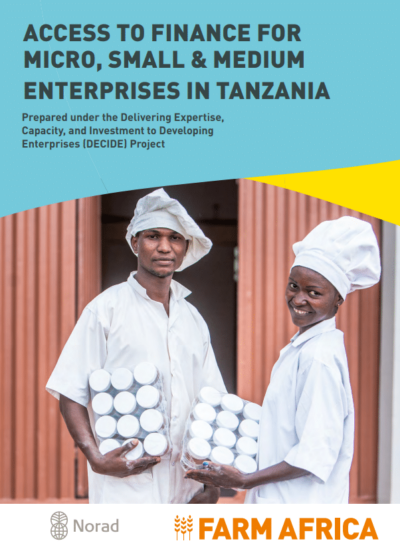Programme
Complete
Developing business acumen in horticultural enterprises
Country
Tanzania
Running from
2019-2023
People reached
45 enterprises
Key focus areas
Boost youth employment
Increase access to finance
Support businesses

Farm Africa worked with micro, small and medium-sized enterprises (MSMEs) to provide the support they needed to evolve into profitable, growing agribusinesses. From a ketchup manufacturer to a green bean exporter, the project worked with a huge diversity of businesses engaged across the horticultural value chain.
Project activities catered to the specific needs of each business including bespoke management, financial and technical training, stakeholder mapping and facilitating mutually beneficial contracts between farmers, buyers, suppliers and traders.
We prioritised investment needs and critical areas that could spur business growth. We also worked with 15 MSMEs from the Tanzanian horticulture sector following the increasing demand for spices, fruits and vegetables in local and export markets.
Farm Africa helped the businesses increase their revenue by building their capacity in business management, promoting access to financial services and strengthening market linkages. Furthermore, we connected SMEs to local Business Development Service providers and observed lessons such as building trust and streamlining the selection process.

Country
Tanzania
Key focus areas
Boost youth employment
Empower women
The role of gender in the Tanzanian horticulture sector
In Tanzania, women and youth are active participants in the agriculture sector, making significant contributions to the sector’s growth. However, the country’s progress towards gender parity across critical areas of life is still at the disadvantage of women. This document shares Farm Africa’s learning from its DECIDE horticulture programme, which has been working with 55 small and medium enterprises (56% women-led) in the Tanzanian horticultural sector.
Download (3.25mb)

Country
Tanzania
Key focus areas
Boost youth employment
Empower women
Country
Tanzania
Key focus areas
Increase access to finance
Available Financing Options for MSMEs in Tanzania
An overview of the challenges micro, small and medium-sized enterprises (MSMEs) face accessing finance in Tanzania, with recommendations on how the situation can be improved.
Download (1.63mb)

Country
Tanzania
Key focus areas
Increase access to finance

